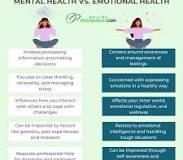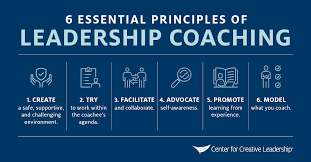The Importance of Mental and Emotional Health
Our mental and emotional health are essential components of our overall well-being. Just as we prioritize our physical health by eating well and exercising, it is equally important to pay attention to our mental and emotional state.
Mental health refers to our cognitive, behavioral, and emotional well-being. It affects how we think, feel, and act. Good mental health enables us to cope with the stresses of life, work productively, form meaningful relationships, and make positive contributions to society.
Emotional health, on the other hand, relates to our ability to manage our emotions in a healthy way. It involves understanding and expressing our feelings appropriately, developing resilience in the face of challenges, and maintaining a sense of balance in our lives.
There are several factors that can impact our mental and emotional health. Stress from work or personal life, traumatic experiences, genetic predispositions, physical illnesses, and substance abuse are just a few examples. It’s crucial to recognize when our mental or emotional well-being is suffering and take steps to address it.
Practicing self-care is one way to nurture our mental and emotional health. This can include activities such as meditation, exercise, spending time with loved ones, engaging in hobbies we enjoy, seeking therapy or counseling when needed, and setting boundaries to protect our well-being.
It’s also important to remember that seeking help is a sign of strength, not weakness. If you’re struggling with your mental or emotional health, reaching out to a professional can provide you with the support and tools you need to navigate your challenges effectively.
Ultimately, taking care of our mental and emotional health is an ongoing process that requires attention and effort. By prioritizing these aspects of ourselves, we can lead more fulfilling lives and contribute positively to the world around us.
Your Guide to Mental and Emotional Health: Answers to 9 Common Questions
- What is mental health?
- What is emotional health?
- How can I improve my mental health?
- How can I manage stress effectively?
- What are the signs of anxiety or depression?
- When should I seek professional help for my mental health?
- Are there natural remedies or techniques to boost emotional well-being?
- How does exercise impact mental and emotional health?
- What role does nutrition play in maintaining good mental and emotional health?
What is mental health?
Mental health refers to our overall psychological well-being, encompassing our emotions, thoughts, and behaviors. It is an essential aspect of our overall health and influences how we cope with stress, relate to others, and make decisions. Good mental health allows us to function effectively in daily life, maintain positive relationships, and navigate challenges with resilience. Recognizing the importance of mental health is crucial in promoting self-awareness, seeking help when needed, and fostering a supportive environment for individuals to thrive emotionally and psychologically.
What is emotional health?
Emotional health refers to our ability to understand, manage, and express our emotions in a balanced and constructive manner. It encompasses our capacity to cope with life’s challenges, form healthy relationships, and maintain a sense of well-being. Emotional health involves being aware of our feelings, recognizing and managing stressors effectively, and developing resilience in the face of adversity. Cultivating emotional health allows us to navigate the complexities of our emotions with clarity and self-awareness, leading to greater overall happiness and fulfillment in life.
How can I improve my mental health?
Improving mental health involves adopting various strategies that promote well-being and resilience. One effective way to enhance mental health is to prioritize self-care practices, such as engaging in regular exercise, maintaining a balanced diet, getting enough sleep, and practicing mindfulness or meditation. Building a strong support system of friends, family, or mental health professionals can also provide valuable emotional support. Setting boundaries, managing stress effectively, seeking therapy or counseling when needed, and engaging in activities that bring joy and fulfillment are all important steps toward improving mental health. It’s essential to remember that progress may take time, and seeking help is a proactive step towards overall well-being.
How can I manage stress effectively?
Managing stress effectively is crucial for maintaining good mental and emotional health. One effective way to manage stress is to practice relaxation techniques such as deep breathing, meditation, or mindfulness. These techniques can help calm the mind and body, reducing the physical and emotional impact of stress. Additionally, setting boundaries, prioritizing tasks, and engaging in regular physical activity can also help manage stress levels. It’s important to identify what triggers your stress and develop healthy coping mechanisms to address them proactively. Seeking support from friends, family, or a mental health professional can also provide valuable resources for managing stress effectively. Remember, taking care of yourself is essential in managing stress and promoting overall well-being.
What are the signs of anxiety or depression?
Recognizing the signs of anxiety or depression is crucial for maintaining mental and emotional well-being. Common symptoms of anxiety may include excessive worry, restlessness, difficulty concentrating, and physical manifestations such as rapid heartbeat or sweating. On the other hand, signs of depression often involve persistent feelings of sadness, hopelessness, loss of interest in activities once enjoyed, changes in appetite or sleep patterns, and thoughts of self-harm or suicide. It’s important to seek help from a mental health professional if you or someone you know is experiencing these symptoms to receive appropriate support and treatment.
When should I seek professional help for my mental health?
Recognizing when to seek professional help for your mental health is crucial for your well-being. If you find that your mental and emotional struggles are significantly impacting your daily life, relationships, work performance, or overall quality of life, it may be time to reach out to a mental health professional. Additionally, if you experience persistent feelings of sadness, anxiety, hopelessness, or overwhelming stress that do not improve with self-care strategies or support from friends and family, seeking professional help is advisable. Remember that seeking assistance is a proactive step towards better mental health and can provide you with the guidance and tools needed to navigate challenges effectively.
Are there natural remedies or techniques to boost emotional well-being?
There are indeed natural remedies and techniques that can help boost emotional well-being. Practices such as mindfulness meditation, yoga, spending time in nature, engaging in physical exercise, maintaining a healthy diet, getting enough sleep, and connecting with supportive relationships can all have a positive impact on our emotional health. These activities can help reduce stress levels, improve mood, increase resilience to challenges, and promote overall well-being. It’s important to explore different strategies and find what works best for you in enhancing your emotional wellness.
How does exercise impact mental and emotional health?
Regular exercise has a profound impact on mental and emotional health. Physical activity triggers the release of endorphins, often referred to as “feel-good” hormones, which can help reduce feelings of stress, anxiety, and depression. Exercise also promotes better sleep, boosts self-esteem, and enhances overall mood. Engaging in regular physical activity can provide a sense of accomplishment and empowerment, leading to improved mental clarity and emotional resilience. Additionally, exercise serves as a healthy coping mechanism for managing difficult emotions and improving one’s overall well-being.
What role does nutrition play in maintaining good mental and emotional health?
Nutrition plays a crucial role in maintaining good mental and emotional health. The food we eat provides the building blocks for neurotransmitters, the chemical messengers that regulate mood, stress response, and cognitive function in the brain. Consuming a balanced diet rich in essential nutrients such as omega-3 fatty acids, vitamins, minerals, and antioxidants can support optimal brain function and contribute to a positive mental state. Conversely, a diet high in processed foods, sugar, and unhealthy fats may negatively impact our mood stability and overall emotional well-being. Making mindful choices about what we eat can have a profound impact on our mental health and emotional resilience.



